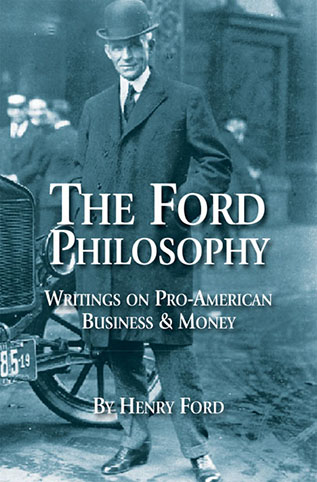Description
By Henry Ford. First published in 1926, this is a compilation of Henry Ford’s thoughts and essays on industry, economics, patriotism, and the moral responsibilities of business.
The book reflects Ford’s belief that capitalism should serve the public good and that industry thrives best when aligned with national prosperity. He critiques speculation and unproductive wealth, emphasizing production, fair wages, and efficient business practices as keys to economic and social progress.
In these writings, Ford advocates for what he considered a moral business model rooted in American values of hard work, innovation, and service to society. He strongly promotes the idea that business leaders should prioritize workers’ welfare and national interest over personal profit.
Throughout the book, Ford also denounces what he saw as financial manipulation by banking elites and centralized interests, positioning his philosophy as a counterpoint to Wall Street capitalism.
In 64 succinct pages, Ford cogently argues the goal of business should be to help the working man in America: “The highest use of capital is not to make more money, but to make money do more service for the betterment of life,” writes Ford.
“And this should apply to all laborers willing to put in a hard day’s work: They have just as much right to the fruits of their labor as today’s billionaire plutocrats and soft-handed executives.”
About the author: Henry Ford (1863–1947), founder of the Ford Motor Company, revolutionized the automobile industry by introducing assembly line production, which made cars affordable to the average American and transformed 20th-century manufacturing. Beyond his mechanical and business innovations, Ford was also a prolific writer and thinker on economic and social issues.
Saddle stitched, 64 pages


